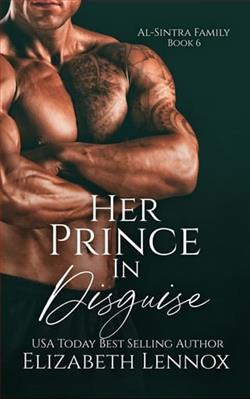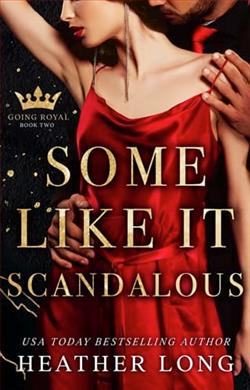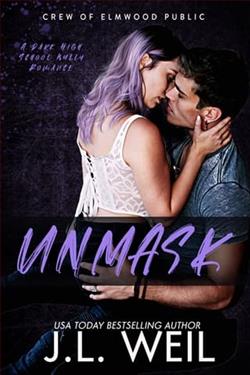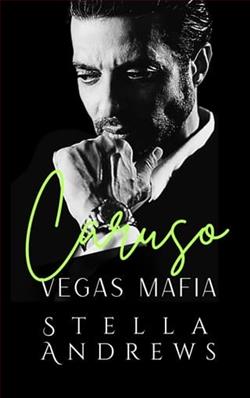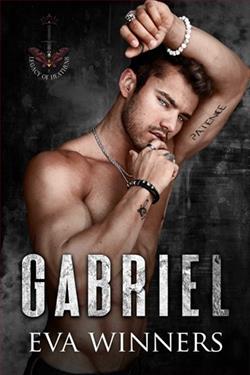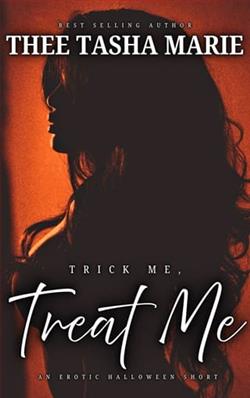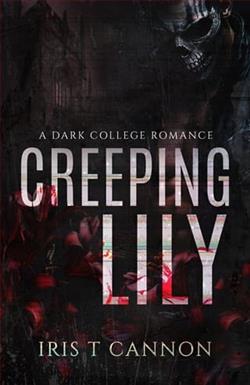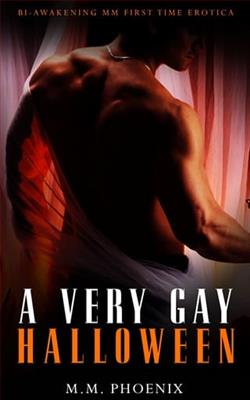Page 7 of Matches and Mistletoe
Except for cleaning days, Elatha was always working. “The act of reclamation feeds my magic,” he told her over dinner one night. “I restore and reuse what has been cast off by wasteful humans. Nature approves, and thus she gifts me the magic I need to fully complete the object’s transformation. It is a slow process, but effective. And by midwinter I have all that I need for another visit to the village.”
After that explanation, he began to converse with her more often—long conversations about magic and Fae history and the world beyond the village and the wood. They spoke of ships, and he showed her a book of maps he had obtained. It had been ruined in a fire, he said, and cast out as garbage, but he had restored it. Together they pored over the pages—and sometimes, when Thistle looked up at him, she suspected he had just been looking at her.
Elatha would go out sometimes and walk the border of the Embry Hollow. He called it “listening,” and claimed that he could discern the villagers’ wishes through proximity.
“So can you hear my thoughts?” Thistle asked, terrified of the answer.
“No, I cannot hear your thoughts,” he said. “I receive impressions or images of what a person craves. And as I said, with you I can see only the surface desires, not the deepest ones. Right now, you want the salt.” He handed the small pot to her.
“Such a useful talent,” she said, taking a pinch of salt and sprinkling it over her vegetables.
Relief eased her nerves. She’d been afraid that he might discern some of the naughtier thoughts that crept into her mind lately. The book he’d given her had turned out to be a volume of love stories. She had never read any such thing. Her Granda’s books had all been the informative kind.
The book contained over three hundred tales, and Thistle allowed herself one each night. Many of them told of love so tremulous and tragic she dripped tears onto the pages. Others depicted all-consuming passion in such vivid detail that wetness bloomed in other places.
On the night before Elatha’s next midwinter visit, Thistle read the story of a human girl who fell in love with a god. The tale featured vivid, lasciviously detailed pictures, and it had such a sorrowful ending that when she finished it, her cheeks were wet and scarlet, and her underthings were soaked.
She slammed the book, got out of bed, and marched to Elatha’s workroom before she could lose her nerve.
He was still working, putting the finishing touches on a jack-in-the-box. When she stormed in, he startled, and the spring on the toy released with atwang.
Thistle dropped the book on his worktable. “Why did you give me this?”
Elatha glanced at the book, then focused on his task. “You like to read.”
“There are many books in the world. Why this one, in particular?”
“I thought you might enjoy it,” he muttered.
“Why?” She leaned toward him. “Look at me.”
When he looked up, a guilty flush burned along his cheekbones.
She did not know how to ask the questions that seared her soul. So they only stared at one another, until she scraped the book off the table and carried it back to her room.
Thistle did not go with Elatha when he took the midwinter gifts to Embry Hollow. She did not wish to see any of the people who had sent her off into the woods with a stranger, without a care for her wellbeing.
But when Elatha returned, she asked a few questions about this person and that. He told her who had died and who had been born, and what he gave to each of the villagers.
“Did any of them ask about me?” she inquired.
“No. I think they were afraid to. Perhaps they thought I ate you.”
“Would you?” she said, before she could stop herself.
“Would I—” his throat bobbed with a hard swallow— “would I eat you?”
“Never mind.” Her heart had crawled into her throat and was pummeling her vocal cords. “Do I get a gift?”
He jumped up, walked over to his sack, and ran his arm inside it.
First he pulled out a stack of Granda’s books, and the polished pipe Granda used to smoke.
Thistle took them reverently, with such a lump in her throat she could not manage to thank him. She inhaled the scent of both pipe and books, then set them on an empty shelf.
Next Elatha withdrew a pair of gold earrings, the ones he had given her last year. As he handed them over, she felt the tiniest prick in her earlobes, and when she reached up, the flesh had been neatly punctured. Just the tiniest drop of blood from each. She dabbed the blood and sucked it off her finger, while Elatha watched with hooded eyes. Then she fastened the earrings in place.
“How do I look?”








